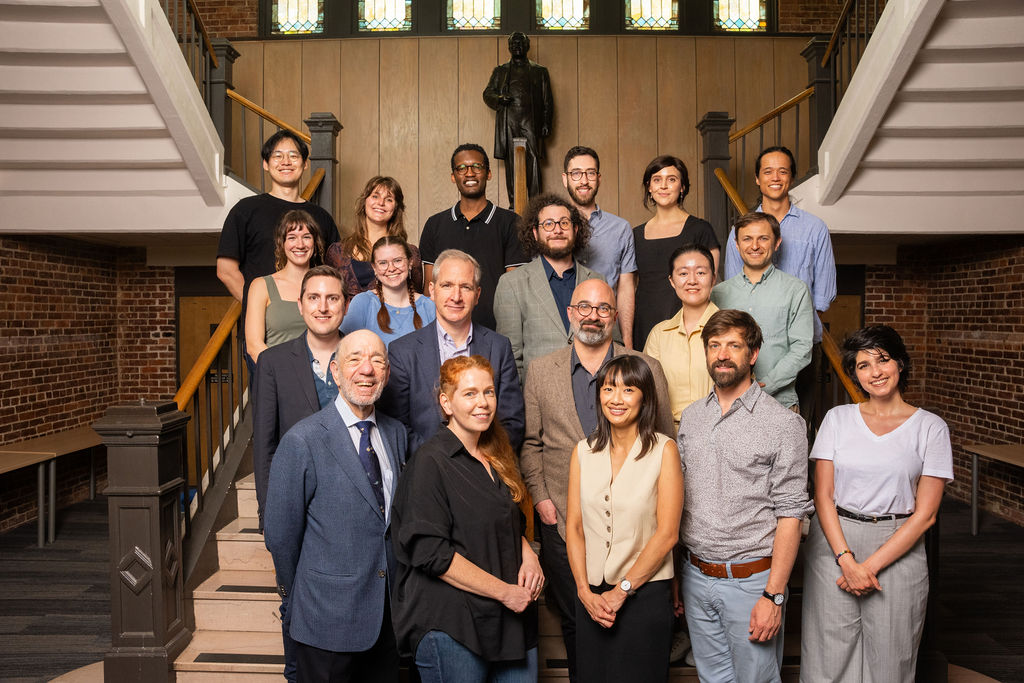Chair’s Welcome
 Welcome to the flourishing community of the Vanderbilt Department of Philosophy! Our award-winning, internationally-leading faculty confront both timeless and timely questions during an age of historic technological growth and societal challenges. Where philosophy graduate programs have trended toward hyper-specialization in recent decades, the Vanderbilt Department of Philosophy is committed to the view that the best education in philosophy must be grounded in a world-class education in the history of philosophy, epistemology, and metaphysics.
Welcome to the flourishing community of the Vanderbilt Department of Philosophy! Our award-winning, internationally-leading faculty confront both timeless and timely questions during an age of historic technological growth and societal challenges. Where philosophy graduate programs have trended toward hyper-specialization in recent decades, the Vanderbilt Department of Philosophy is committed to the view that the best education in philosophy must be grounded in a world-class education in the history of philosophy, epistemology, and metaphysics.
Work for the Ph.D. degree is offered in all major fields of philosophical inquiry and historical periods of philosophy. The department has strengths in ethics, social and political philosophy, epistemology, philosophy of religion, and the history of philosophy, especially Kant and post-Kantian philosophy, early modern, and ancient. Our faculty reflects a variety of approaches and methodologies, including analytic, continental, historical, and pragmatic. While our faculty’s leading publications span broad areas of philosophy, a quick look reveals a powerful confluence in the area of value theory:
- Robert Talisse’s forthcoming third volume in his trilogy of books in political philosophy, Civic Solitude: Why Democracy Needs Distance (Oxford University Press)
- Matt Congdon’s Moral Articulation: On the Development of New Moral Concepts (Oxford University Press, 2023)
- David Thorstad and Jacob Barrett’s forthcoming co-edited (with Hilary Greaves) volume addressing the threat of AI, Essays on Longtermism (Oxford University Press)
- David Thorstad’s new book on epistemology under nonideal conditions, Inquiry Under Bounds (Oxford University Press, 2024)
- Jacob Barrett’s Ideal and Non-Ideal Theory, under contract with Cambridge University Press, in their Cambridge Elements in Political Philosophy series
- Sarah Raskoff’s Veganism, More or Less: A Philosophical Guide, under contract with Princeton University Press
- Diana Heney’s forthcoming American Ethics: An Introduction to Pragmatist Moral Philosophy (Oxford University Press)
- Lenn Goodman’s (with Philip Lieberman) just-released translation and commentary on the ethics of Maimonides, Maimonides’s Guide to the Perplexed (Stanford University Press, 2024), which Goodman has paired with his accompanying A Guide to the Guide to the Perplexed: A Reader’s Companion to Maimonides’ Masterwork (Stanford University Press, 2024)
- Scott Aikin’s (with William Stephens) translation and commentary on the Stoic ethics of Epictetus, Epictetus’s ‘Encheiridion’: A New Translation and Guide to Stoic Ethics (Bloomsbury Academic, 2023)
- Emanuele Costa’s forthcoming book on the Ethics of Spinoza, The Structure of Spinoza’s World (Oxford University Press)
- Julian Wuerth’s Kant on Mind, Action, and Ethics (Oxford University Press, 2014), winner of the North American Kant Society Book Prize for Senior Scholars
- Karen Ng’s Hegel’s Concept of Life: Self-Consciousness, Freedom, and Logic (Oxford University Press, 2021), winner of the Journal of the History of Philosophy Book Prize.
Vanderbilt’s strong placement record for its Ph.D. students reflects this balanced training. Current placement data can be found here. Every Vanderbilt Ph.D. student receives generous financial support: six years of full funding for a Ph.D. program designed to be completed in five to six years.
Our department also regularly places its undergraduate philosophy majors and minors into top postgraduate programs, most commonly in law, medicine, business, and philosophy. The reason is simple: our philosophy undergraduates not only engage with life’s big questions but also receive rigorous training in analysis of difficult texts and topics by our department’s many award-winning teachers, honing skills in clear, critical, and independent thinking. Vocations can quickly go out of style in today’s shifting marketplace, but clear thinking and writing don’t. What’s more, training in ethics is prized in medicine, business, and law; and training in political philosophy gives students a leg up for law school.
The Department of Philosophy is a bustling hub of trans-institutional, inter-disciplinary activity. We have strong collaborative ties with Vanderbilt’s Artificial Intelligence Institute, the Center for Biomedical Ethics and Society, and the Department of Political Science. We also have a Philosophy Colloquium, an annual Berry Public Lecture, national and international workshops and conferences, and student reading groups such as Minorities and Philosophy (MAP) and Ethcetera. We also have the online lecture series, Vanderbilt Modern Philosophy (VAMP), a regular Social and Political Theory Workshop, and a thriving undergraduate Philosophy Club. These and many other offerings are made possible in part by a long tradition of generous financial support from our alumni, including Greg S. Allen and Elizabeth Sorensen, Alan Berry, Douglas and Ruby MacDonald, and Marianne and Andrew Byrd.
Julian Wuerth
Chair, Department of Philosophy
Associate Professor of Philosophy

